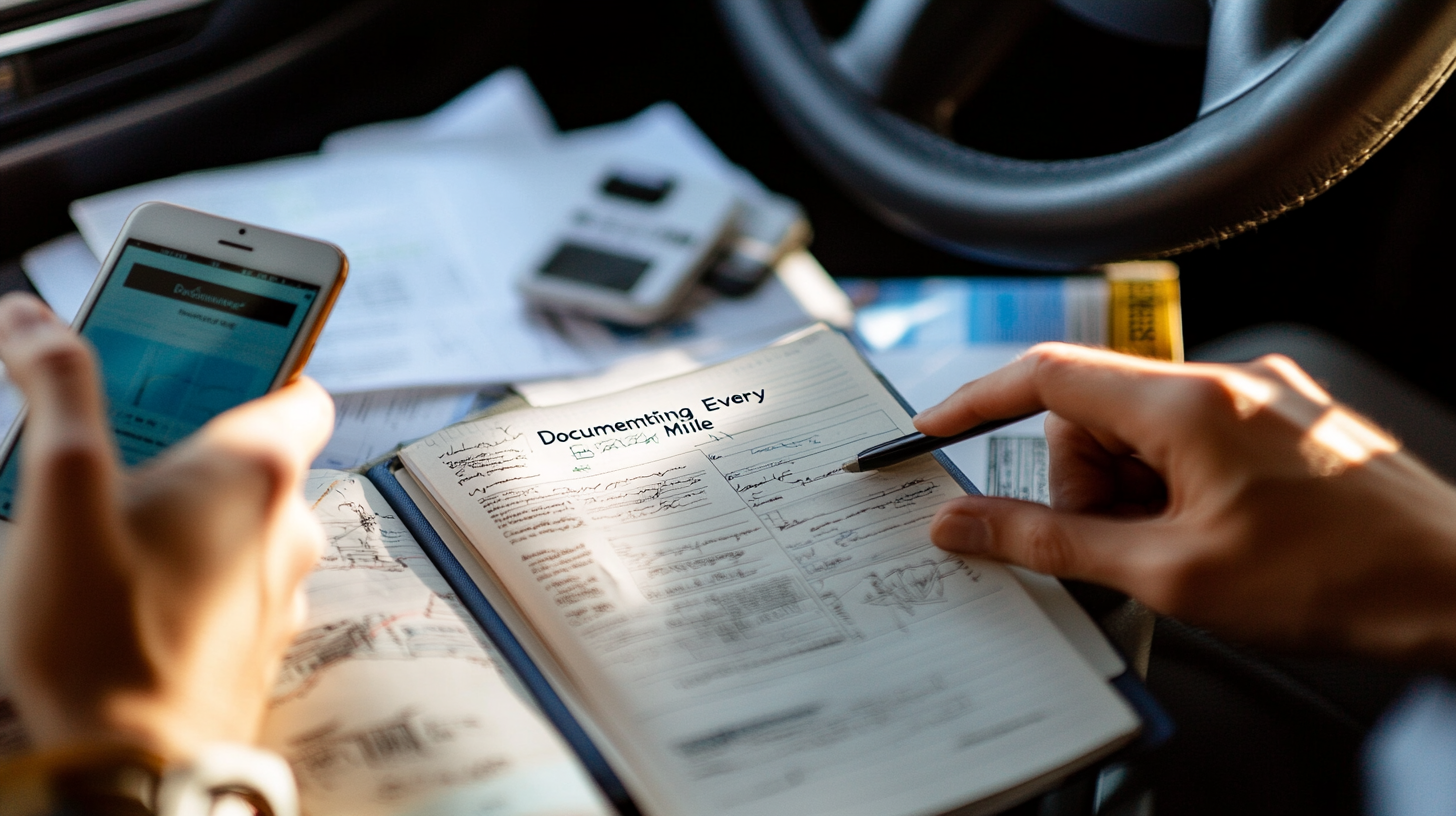A Mile-Savvy Guide to Small Business Travel Deductions
I’ve always found that knowing exactly what the IRS deems deductible can transform an ordinary business trip into a strategic move that benefits both my bottom line and my frequent-flyer balance. In my own travels, I’ve noticed that when you stay organized and mindful of why you’re traveling for work, you end up retaining more of your hard-earned revenue. Below, I’ll walk through some of the key details I’ve picked up along the way, grounded in the latest guidelines and industry data.
What Qualifies as Deductible?

Based on today’s IRS regulations (which haven’t changed much as of 2025), business-related expenses generally include airfare, lodging, rental transportation, and a share of meal costs, provided you can prove these expenses directly tie back to your work. I’ve observed that the clearest indicator is whether the expense is “ordinary and necessary,” meaning it makes logical sense for your line of business. According to a recent survey by the Small Business & Entrepreneurship Council, nearly 70% of small business owners rely on air travel multiple times a year, suggesting that there’s a large, active group of entrepreneurs poised to benefit from these deductions.
Still, the IRS won’t give you a free pass on extravagance. If you book a suite at a luxury resort and spend most of your time enjoying spa treatments, those costs are deemed personal. I’ve met fellow travelers who learned this lesson the hard way when they tried to write off family add-ons or resort amenities that bore no legitimate relation to their work. In short, focusing on essential expenses and maintaining a paper trail are the keys to protecting your sweet deduction deals.
Keeping Your Trip Temporary

Not all business trips are short—a detail that can affect tax eligibility. Assignments lasting under a year typically qualify as temporary travel, making the related expenses deductible. However, if your project unexpectedly stretches beyond that 365-day mark, the IRS calls it “indefinite,” meaning those flight and lodging costs lose their deductible status. I recall a conversation with a convention organizer who’d initially planned for a six-month schedule in a new city. He ended up extending the contract to nearly two years, which meant a sudden shift in how his travel expenses were treated for tax purposes.
When your travel remains truly temporary, it can open up more possibilities for deductions. A recent study from the National Federation of Independent Business reported that nearly 40% of small business owners who accept short-term consultancy or project-based gigs successfully deduct travel expenses for these undertakings. I find it helpful to mark key dates in a digital calendar and reevaluate them periodically to ensure a short trip isn’t becoming a long-term stay—tax-wise, that can save a lot of headaches.
Documenting Every Mile

Proper documentation is where many entrepreneurs stumble. Trust me, it’s easy to forget that midday rideshare receipt or the last few miles driven back to the airport. According to IRS best practices, receipts, bank statements, and a record of each trip’s purpose, dates, and specific expenses are standard requirements. In my own experience, it’s crucial to have a consistent system. I’ve seen colleagues use cloud storage apps to immediately upload each receipt, while others create spreadsheets to track miles and expenses in real time.
Industry professionals, including enrolled agents and CPAs, emphasize that complete and clear records often determine whether the IRS approves or denies a deduction. I still remember hearing stories from self-employed individuals who lost deductibility simply because they couldn’t tie their expenses clearly back to an actual business goal. As of 2025, the systems for electronic recordkeeping are better (and cheaper) than ever, so there’s really no excuse for letting disorganized paperwork undermine legitimate deductions.
Separating Business from Leisure

I’m all for mixing a bit of fun into a work trip—that’s part of the joy of traveling. But those personal activities can’t be lumped in with the tax-deductible side of the journey. Only the portion of the trip that directly relates to business can be deducted, while anything else falls squarely on your personal tab. When I attended a conference in Barcelona last year, I stayed for a few extra days to explore the city’s food scene. You can bet I separated those personal meal and local touring costs from my official expense log.
If you’re traveling with family or friends, staying on top of who pays for what is especially important. According to a 2024 report by the Global Business Travel Association, “bleisure” (the combination of business and leisure trips) is steadily on the rise, making it even more vital to clarify which days are principally devoted to work. In short, it’s not about giving up the chance to see the world—just maintaining an honest record of which moments were purely for the business side of life.
Top Picks for Seamless Bookkeeping

Keeping track of every receipt used to be a chore, especially when juggling flight delays and jam-packed schedules. Nowadays, I rely on automated bookkeeping tools like Bench or QuickBooks to do the heavy lifting. A lot of small business owners I know prefer these platforms because they integrate directly with your bank or credit card, so each expense is automatically logged. It helps keep me calm, especially when I’m rushing to make connecting flights.
Another sound strategy is partnering with a tax professional. There’s no shame in admitting that we, as small business travelers, can benefit from expert guidance. According to data from the American Institute of CPAs, nearly 80% of small business owners who regularly consult a CPA find they’re able to identify additional deductions they would have otherwise missed. Having an expert go over your books can make a massive difference—and ensure your records are squeaky clean in case of an audit.
The Bottom Line

At the heart of it all, maximizing your travel deductions comes down to mindful planning, consistent recordkeeping, and strict separation between personal and business activities. If your journey is mostly for business, involves ordinary and necessary expenses, and remains under a year in length, there’s likely a solid tax advantage waiting for you. Modern tools are making it easier than ever to stay up to date with receipts and expense categorization, so you can focus on the project at hand and less on the paperwork.
The difference between a stressful, disorganized excursion and a well-managed, financially beneficial trip usually lies in the details. By doing your homework and keeping serious track of how you spend each travel dollar, you can significantly improve your cash flow and keep your business humming along smoothly.
Final Thoughts

Whether you’re jetting around to meet clients in different states or exploring opportunities overseas, taking full advantage of legitimate travel deductions can open up opportunities that might otherwise remain out of reach. True tax-savvy travel isn’t just about pinching pennies; it’s about gaining the freedom to invest in more meaningful experiences for your burgeoning enterprise. When done responsibly, these deductions allow room for growth and innovative ideas that might spark the next big breakthrough.
My own travels often reveal how a well-structured trip can let me see new markets and connect with clients in a personal way—without breaking the bank. The key is not to treat the tax code like an afterthought. If you plan thoroughly, maintain comprehensive records, and keep a vigilant eye on the nature of each cost, your next flight could be more rewarding than you ever imagined.
Barry B.’s Take
My favorite part of traveling for business is discovering how each new place can spark a fresh insight or spark of creativity. When you know the rules and document everything appropriately, you’re not just saving dollars—you’re also creating space for more inspired journeys down the line.
I’ve learned that the real reward comes when you land at your destination feeling confident in your finances and excited for the next opportunity. That’s where the magic of travel meets true peace of mind.
milesBUZZ is your trusted resource for all things travel, so join in and keep exploring.







